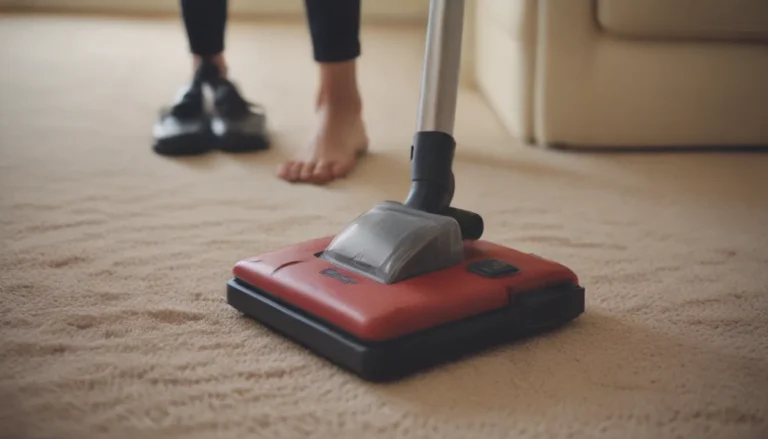A Comprehensive Guide to Naturally Remove Mice From Your Home

Dealing with mice in your home can be a major nuisance. Not only can they create a mess, damage property, and cause sanitation issues, but they can also be carriers of disease. It’s essential to address a mouse infestation promptly and effectively. In this guide, we will explore natural methods to get rid of mice and prevent them from coming back.
Identifying a Mouse Infestation
Before you can effectively tackle a mouse problem, you need to be sure that you’re dealing with mice and not another critter like rats or bats. Mice are small animals, usually about 7.5 inches in length with thin bodies, short legs, and large ears. They come in various shades of brown and gray. The key to identifying mice is their size and distinctive features, such as their whiskers and narrow snout.
Warning
Mice, rats, and bats can carry and spread diseases, so it’s crucial to exercise caution when dealing with them. Make sure to use proper personal protective equipment to minimize the risk of exposure to harmful pathogens.
Natural Ways to Get Rid of Mice
Here are some effective, all-natural methods to eliminate mice from your home:
1. Reduce Food and Water Sources
Start by identifying and removing potential food and water sources that may be attracting mice to your property. Mice are resourceful creatures and will be less likely to leave if their basic needs are being met. Common food sources for mice include:
- Pet food
- Garbage
- Bird feeders
- Compost piles
By minimizing these food sources, you can make your property less appealing to mice.
2. Remove Their Cover
Mice are adept at hiding in small spaces and crevices. Clear away clutter and ground cover around your home to eliminate potential hiding spots for rodents. Additionally, seal off any gaps or openings that mice could use to gain access to your house.
Tip
Mice are attracted to warm air escaping from gaps in your home’s exterior. By sealing off potential entry points and reducing clutter, you can make it harder for mice to find their way inside.
3. Identify and Seal Entry Points
Perform a thorough inspection of your home to identify any gaps or openings that mice could use to enter. Use the following equipment for a comprehensive pest inspection:
- Flashlight
- Mechanic’s mirror
- Protective gloves
Seal any openings larger than a dime with steel wool or mesh to prevent mice from squeezing through.
4. Set Traps
Traps are an effective way to capture mice that have already made their way inside your home. Place traps strategically in areas where you suspect mouse activity, making sure to check and reset them regularly. If you’re unsure whether you’re dealing with mice or rats, opt for glue trays that can capture rodents of any size.
Warning
Exercise caution when setting traps, especially if you have pets or young children. Place traps in discreet locations where they won’t be easily accessed by unintended targets.
Signs of a Mouse Infestation
In addition to seeing actual mice, there are other signs that may indicate a mouse infestation in your home:
- Scratching noises in walls or ceilings
- Finding droppings around the house
- Gnaw marks on furniture or walls
- Unusual odors
If you suspect a mouse infestation, it’s essential to address it promptly to prevent further damage.
Tip
The size and shape of droppings can provide clues about the type of rodent present in your home. Larger droppings typically belong to rats, while smaller droppings are indicative of mice.
Preventing Mice from Returning
To keep mice at bay in the long term, consider implementing these natural mouse repellent strategies:
1. Maintain a Clean and Tidy Home
Regularly clean and declutter your living spaces to remove potential hiding spots and food sources for mice.
2. Seal Off Entry Points
Regularly inspect your home for gaps or openings that mice could use to enter. Seal off any cracks or holes to prevent rodents from gaining access.
3. Use Natural Repellents
Certain scents like peppermint, eucalyptus, and cinnamon are known to repel mice. Consider using essential oils or sachets to deter rodents from entering your home.
When to Seek Professional Help
While natural methods can be effective in controlling mice, sometimes a professional pest control service may be necessary. If you’ve tried various strategies with limited success, consider enlisting the help of experts who specialize in Integrated Pest Management.
Tip
Avoid using spray foam to seal entry points, as rodents can quickly chew through it. Opt for more durable materials like mesh or steel wool for long-lasting protection.
By following these natural methods and preventive measures, you can effectively remove mice from your home and keep them from coming back.
References:
– Centers for Disease Control and Prevention. “Diseases from Rodents.”
– National Institute for Occupational Safety and Health. “National Ladder Safety Month is Here – Here is what you need to know to stay safe when working with ladders.”
– Thind, Ramandeep Kaur. “Potential of Eucalyptus Oil as Repellent against House Rat, Rattus rattus.” The Scientific World Journal, vol. 2014, no. 249284, 2014. doi:10.1155/2014/249284.





